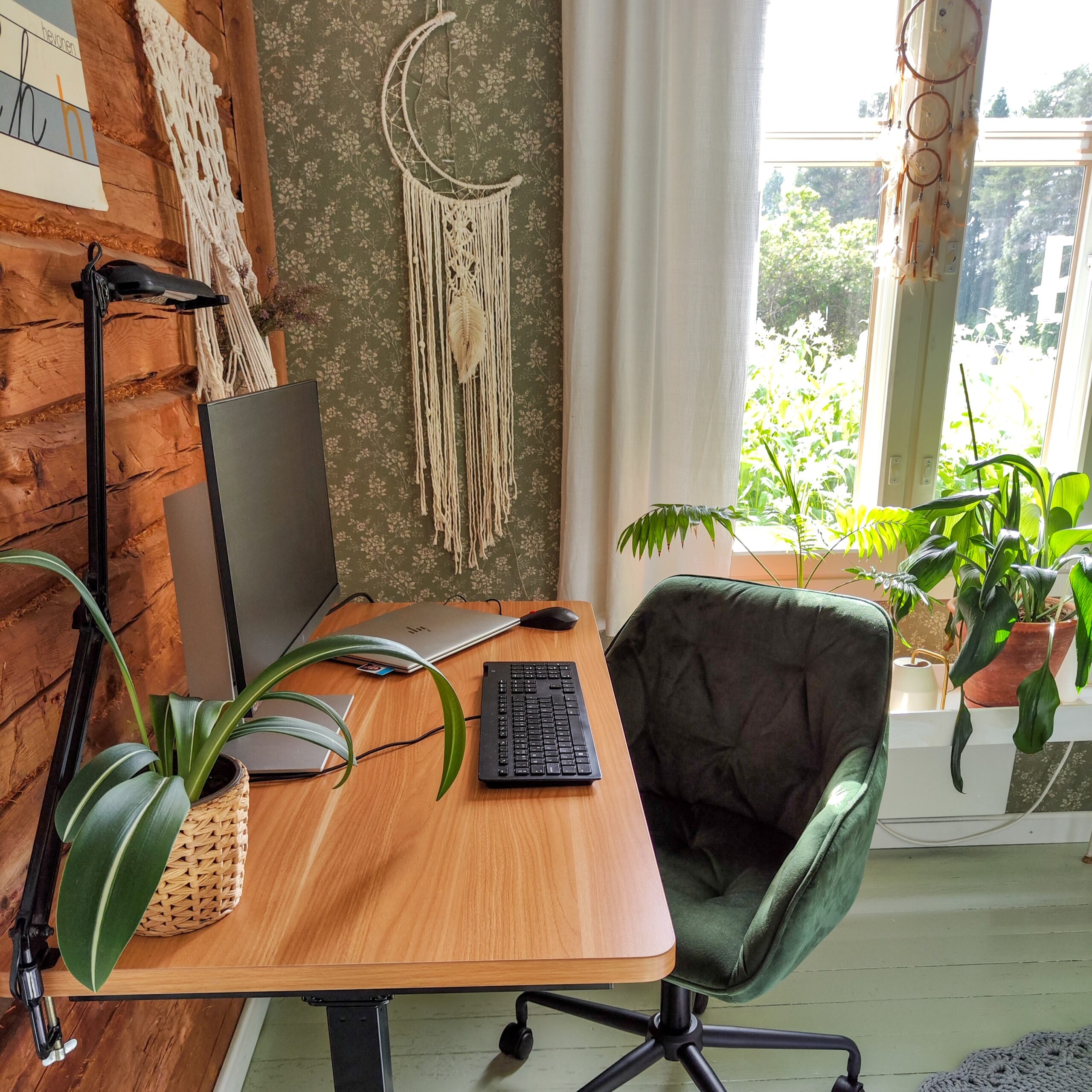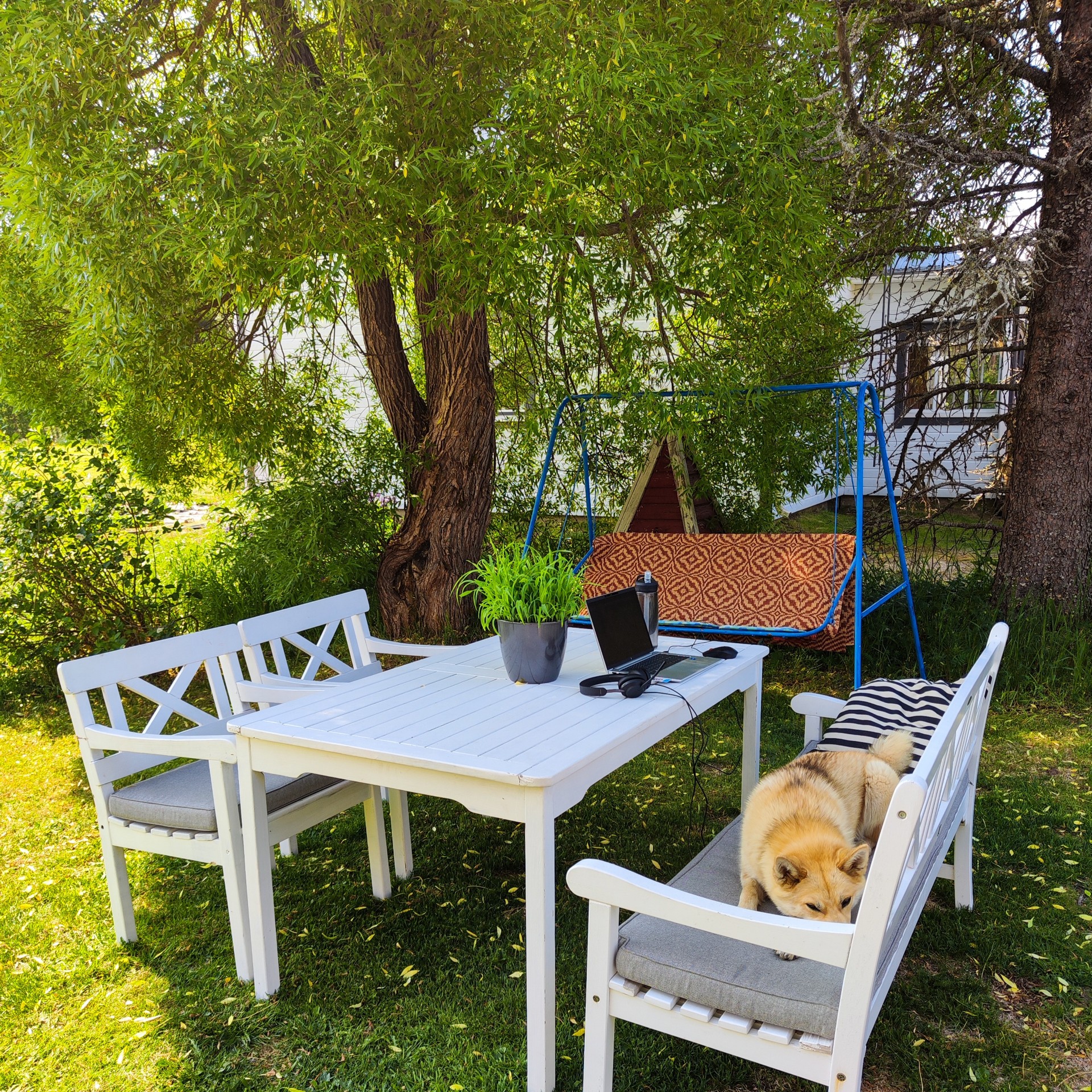DIGI SOCIETY
Digitalization on my life and work nowadays
For the last few years I have been working as a nurse completely remotely for a clients of an insurance company, so digitalization is very big a part of my work at the moment. When I still worked in a hospital a few years ago, I could not even imagine that a nurse could work remotely. Clients can reach me either by phone or chat, get health- and insurance advice and if necessary, make appointments with doctors. Assessing the client’s care needs is at the heart of my work and my own professional knowledge needs to be supported by a range of guidelines, for example ”Käypä hoito” – recommendations. For insurance matters, customers can make a claim report on the insurance company’s website, or while calling the nurse for a doctor’s appointment or advice on an accident or illness.
Teleworking emphasises IT- skills, such as learning and using constantly evolving and updated software and applications. As a child of the digital age myself, I started learning IT-skills at primary school. Phones and computers have been present in my life since then, so my IT- skills have developed along with digitalization. Maybe that’s why I haven’t experienced the development of digitalization as much of a challenge for me, compared to my parents for example. Or my grandparents!
The benefits of digitalization and teleworking
Most of ailments and illnesses can also be treated remotely nowadays. Access to services and remote treatment of health problems, for example, saves you time and money from travelling to the site. In addition, the carbon footprint remains smaller and the same applies to teleworking also. As digitalization continues to advance, people will be able to do more and more things digitally and teleworking opportunities will increase. This means fewer or smaller physical workplaces, such as offices, are needed as employees work mainly from home. On the other hand, the possibility of teleworking increases employment, especially in the under-served social and health sector, because teleworking attracts workers and allows them to work from anywhere. The possibility of flexible working hours is also an employer’s trump card. Most employers use the so-called “hybrid model”, where employees go to the office for an agreed amount of work. This also promotes a sense of community and socialisation as a counterbalance to teleworking at home alone. Now, after the corona epidemic, my employer requires employees to visit the office four times a month, for example once a week.


Two different types of home offices, one of which works only in summer.
Risk of open digital society
The risks of an open digital society relate in particular to privacy, security and misuse of data. The openness of data can lead to a loss of privacy when personal data is widely collected and shared. Cyber-attacks, data breaches and identity theft can also increase when systems are open and digital, making it easier for fake news and misinformation to spread.
The General Data Protection Regulation (GDPR) will improve patients’ privacy and give them greater control over their data. It forces healthcare organisations to handle personal data with care, reducing the risk of data leaks and misuse. The GDPR will also promote the development of data security and privacy practices, which will improve trust in healthcare systems. On the other hand, the GDPR may introduce additional administrative burdens, as it sets out precise requirements for data processing. This may require additional training and resources to comply with data protection policies. Incorrect processing or failures to comply can lead to significant fines. My job as a nurse requires strict data protection, especially when processing patient data. Patients’ consent to the processing of their data must often be clearly requested and a note must be left in the medical record stating why I have opened the medical record.
Opinion on Chat GPT (AI)
I have used Chat GPT for the first time during this education. I was surprised how much it can be helping for example in brainstorming, problem solving and text structuring. When you feel that you can’t formulate an issue properly, it can be useful. I think the text it translates into English is quite fluent also, but usually I use another app for that. Although it contains a lot of information, I would not use it as a source alone. I would look elsewhere for an official source.
I asked Chat GPT for itself, what are the disadvantages of using you honestly? Chat GPT replied that it can provide incorrect or outdated information, especially if the topic is new or complex. In addition, it does not understand emotions or context, which can lead to misunderstandings. It does not have access to real-time information or websites without a separate function. Finally, it mentions that personal information should not be shared too much, as AI does not guarantee complete privacy. These listed disadvantages should be taken into account when using it.
Self-assessment
I am most concerned about the risks and drawbacks of digitalization and artificial intelligence, which not all people are aware of. Older people in particular are at risk of abuse. Education and information on the risks mentioned above can certainly never be too much. In my experience, a big responsibility in educating older people with us younger relatives, because we have better IT- skills and more aware of the dangers of digitalization.
Nowadays the dangers of digitization are told on television with the help of advertisements. Maybe for example municipalities and cities could also organize more counseling, especially for the older people?
My comments:
https://blogi.savonia.fi/pauliinapajunen/digi-society/
Hello! I don’t use Tiktok myself, but I agree with the more strictly controlled age limits for social media services. Instagram does the same thing, feeds you content based on what you pay attention to. It’s also pretty wild too, when you google something the content comes up with ads on every platform you use.
An earlier comment ran away too soon, hah! I have also found Chat GPT useful for schoolwork, but I would not consider it a reliable or only source. You can read on my blog if you want to, what Chat GPT told me when I asked about disadvantages of using it. https://blogi.savonia.fi/sonjase/digi-society/
https://blogi.savonia.fi/mintei/digi-citizen/
Hi! 🙂
I have only been using Chat GPT for about a year for school work. But I was very surprised how it was able also to formulate a nice poem for my friend’s birthday card when I told it the outline of what I wanted to say in the card. Also, it was pretty wild that another friend of mine made a whole playlist of songs only by using AI. He made each song about different friends and their lives. One song was also about cleaning home and how miserable it is. We listened to the songs during the evening and it was really funny, the songs sounded so real. On the other hand, the wide range of uses of AI makes wonder what’s real and what’s not (e.g songs, pictures, lyrics..)